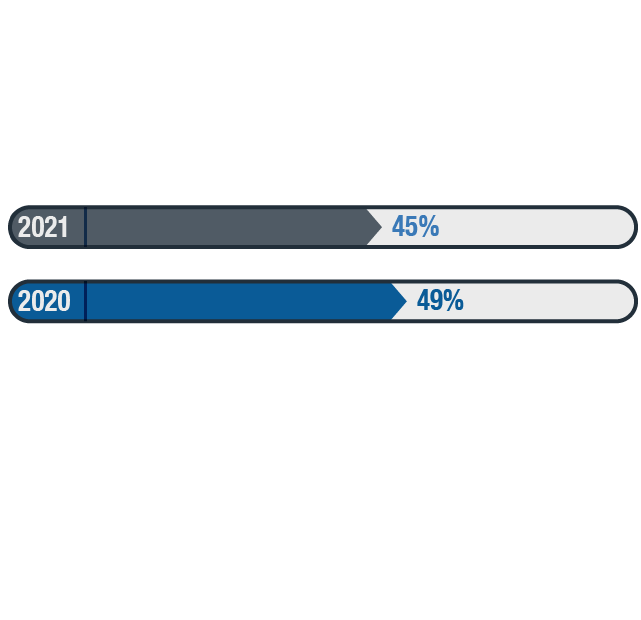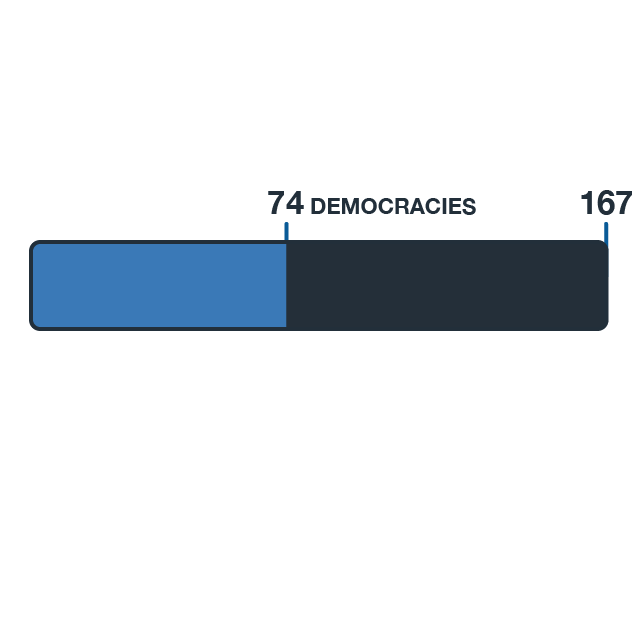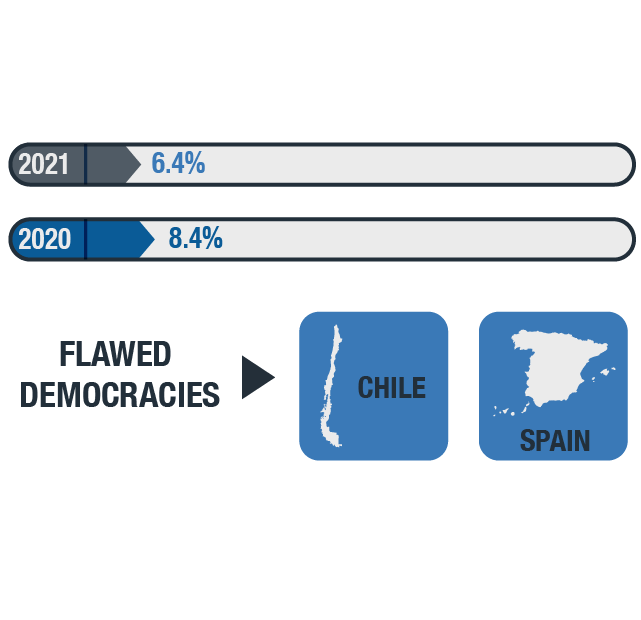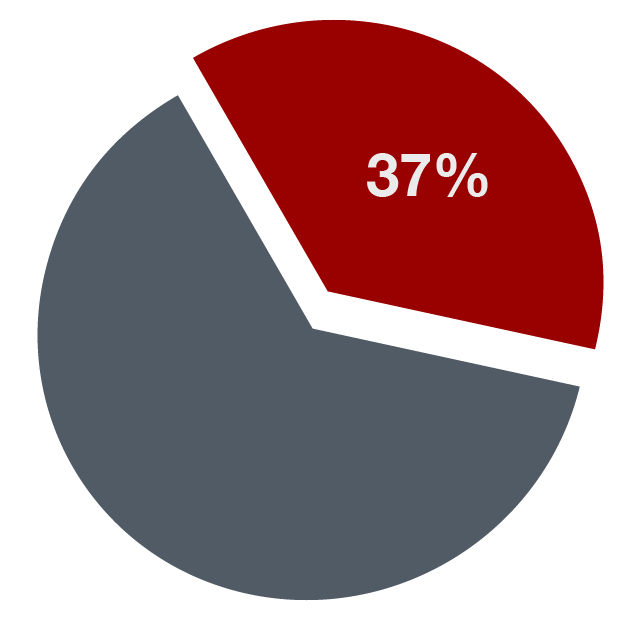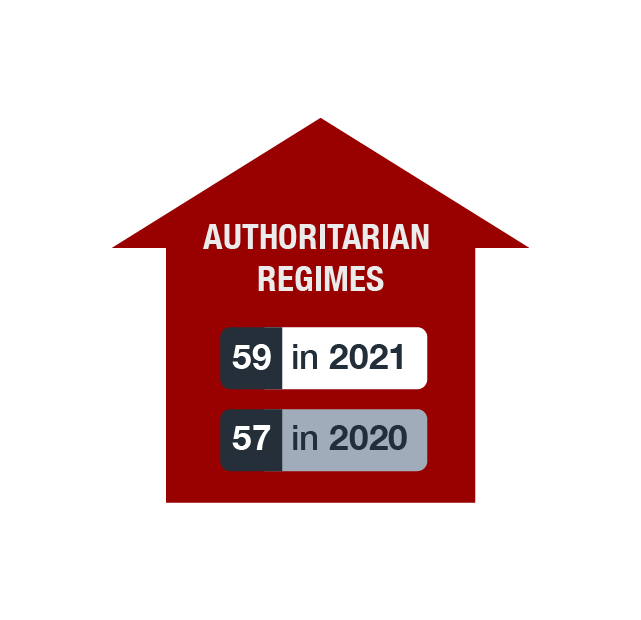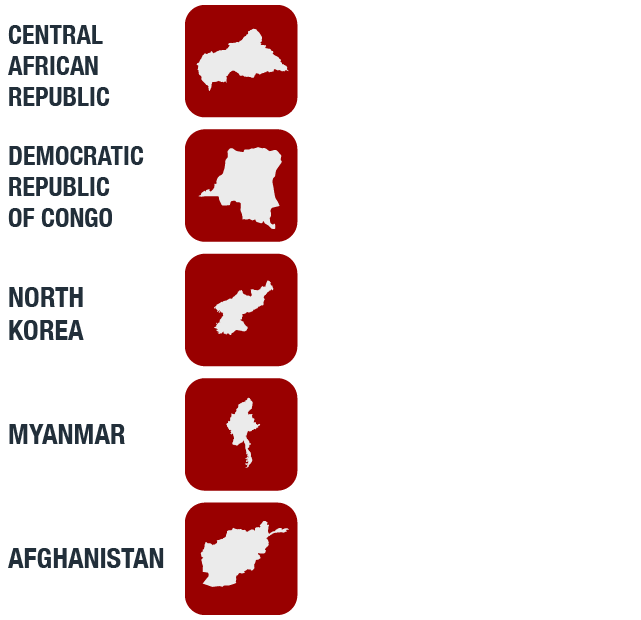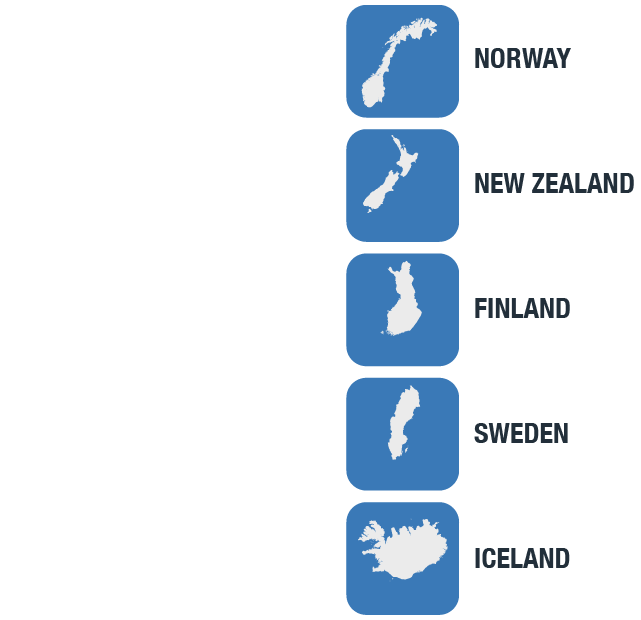International Day of Democracy
How is the World Measuring Up?
The global pandemic has not only affected health and wellness, it has also weakened democratic institutions. As the world recognizes the International Day of Democracy on September 15, many are hoping for improvements to democracy.
In 2007, the United Nations General Assembly declared September 15 the International Day of Democracy. Since then, the day has become an annual opportunity to review the status of democracy around the world.
The Democracy Index, compiled each year by the U.K.-based Economist Intelligence Unit, measures worldwide democracy based on five categories: electoral process and pluralism; functioning of government; political participation; political culture; and civil liberties. The COVID-19 pandemic has negatively impacted every region of the world, but some regions and countries have suffered worse than others.
Below, we take a look at how democracy is faring today.
Authoritarian
regimes
Full
Democracy
Democracy
| 1.0 | 2.0 | 3.0 | 4.0 | 5.0 | 6.0 | 7.0 | 8.0 |

